Incheon International
Ocean Forum 2026
2026. 7. 16(Thu) - 17(Fri)
Songdo Convensia
Speakers


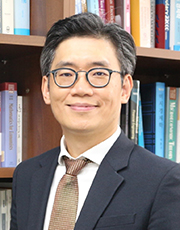
Song Sang Hwa
Dean
Incheon National University Graduate School of Logistics
2023 – Present: Dean, Graduate School of Logistics, Incheon National University
2020 – Present: Team Leader, 4th Phase BK21 Project Team, Incheon National University
Advisory Professor for companies in the fields of distribution, logistics, and SCM, including Naver and POSCO DX
Professor SangHwa Song is currently serving as a professor at the Graduate School of Logistics at Incheon National University and previously worked as a software engineer and consultant at IBM.
His main research areas focus on the digital transformation of business, including logistics and supply chain management. He emphasizes the use of mathematical optimization, machine learning, data analytics, and strategic frameworks for digital transformation.
He has conducted industry-academic collaboration projects with organizations such as Incheon Port Authority, Korea District Heating Corporation, Hyundai MnSoft, Korea Trade-Investment Promotion Agency (KOTRA), Korea Expressway Corporation, Korea Maritime Institute, SK, and Hyundai Steel.
He has served as an advisory professor for private companies including Naver, CJ Logistics, KOTRA, Hyundai Steel, and Homeplus, and has held roles such as a member of the Logistics Policy Committee of the Ministry of Land, Infrastructure and Transport and a logistics subcommittee member of the National Mobility Innovation Forum.
Since 2020, he has been leading the 4th Phase BK21 project team supported by the Ministry of Education under the theme ""Cross-border e-commerce and logistics innovation with artificial intelligence and digital platform.""

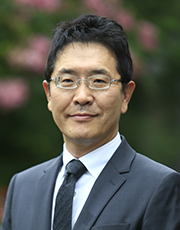
Lee Kitack
Professor
Pohang University of Science and Technology, Division of Environmental Science and Engineering
Higher Education
Univ. of Miami/RSMAS, Miami, FL, Ph.D. in Chemical Oceanography, 1992–1996, Thesis advisor: Professor Frank J. Millero.
Thesis title: Studies of the carbonate system in the oceans, 253 pp.
Univ. of South Florida, St. Petersburg, FL, M.S. in Chemical Oceanography, 1988–1991, Thesis advisor: Professor William M. Sackett.
Thesis title: The high temperature titration of amorphous silica, 62 pp.
Chungnam National University, Korea, B.S. in Oceanography, 1982–1986.
Employment History
Pohang University and Science and Technology, Pohang, Korea, Assistant, Associate, and Full Professor of Divison of Environmental Science and Engineering, 8/1/2001–present.
NOAA/AOML/CIMAS, Miami, FL, Assistant Scientist, October 1998–July 2001.
NOAA/AOML/CIMAS, Miami, FL, Postdoctoral Research Associate, June 1997–September 1998 (Advisor: Dr. Rik Wanninkhof).
Univ. of Miami/RSMAS, Miami, FL, Postdoctoral Research Associate in Chemical Oceanography, September 1996–May 1997 (Advisor: Professor F.J. Millero).
Research Interests (Human footprints in the ocean)
Ocean acidification due to anthropogenic carbon dioxide and its impact on marine ecosystemsThe role of the oceans in absorbing anthropogenic carbon dioxide
Impacts of anthropogenic nitrogen on the marine nitrogen and carbon cycles
Oceanic dimethylsulfide production over the Arctic Ocean and its impacts on aerosol formation
Study of biogeochemical cycles of carbon and nutrients in aquatic environments using tracers
Professional Experiences
Lecture entitled “Impacts of Anthropogenic Nitrogen on Ocean Nitrogen System in the Yellow and East China Seas”, AGU Fall Meeting, San Francisco, December 9-13, 2019
Plenary lecture entitled “Biological production reduces the net impacts of coastal acidification in the northwestern Pacific Ocean”, SOLAS Open Science Conference, Sapporo, April 21-25, 2019.
Lecture entitled “Rising anthropogenic nitrate levels in the North Pacific Ocean”, Monterey Bay Research Institute, CA, USA, July 19, 2017.
Plenary lecture entitled “Anthropogenic ocean chemistry changes (carbon and nutrients)”, First Korean-American Kavli Frontiers of Science Symposium, Korean Academy of Science and Technology-U.S. National Academy of Sciences, Irvine, CA, USA, August 12–14, 2013.
Plenary lecture entitled “Human footprints in the marginal seas in the northwestern Pacific Ocean”, The North Pacific Marine Science Organization (PICES) Science Board Symposium, Hiroshima, October 12–19, 2012
Plenary lecture entitled “Change in ocean carbon chemistry since pre-industrial times”, Intergovernmental Panel on Climate Change, Working Group II/I Workshop on Impacts of Ocean Acidification on Marine Biology and Ecosystems, Okinawa, Japan, January 17–19, 2011.
Plenary lecture entitled “Excess carbon export following the spring bloom in extratropical oceans: Implications of N2-fixer-mediated carbon export”, Surface Ocean-Lower Atmosphere Study (SOLAS) Open Science Conference, Xiamen, China, March 6–9, 2007.
Visiting Scientist at the Univ. of Washington/Pacific Marine Environmental Laboratory, Seattle, WA, USA, February 2009–December 2009.
Adjunct Assistant Professor in Marine and Atmospheric Chemistry Division of Univ. of Miami/RSMAS, Miami, FL, USA, 2002–2009.
Session Chair for the 2nd International Symposium of CO2 in the Oceans, Tsukuba, Japan, January 1999.
Chief Scientist for National Oceanic and Atmospheric Administration/Ocean 2Atmosphere Carbon Exchange Study (NOAA/OACES) North Atlantic cruise (24 N), January 2–February 24 1998.
Teaching Assistant for undergraduate and graduate chemical oceanography at the University of Miami, 1993–1996.
Research Assistant at the University of South Florida, 1988–1991.

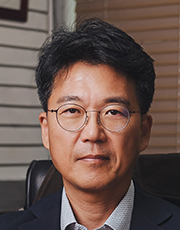
Woo Seungbuhm
Oceanography Professor
Inha University
PhD from Cornell University in Coastal and Ocean Engineering
Current) Professor at Inha University Department of Marine Science and Biological Engineering
Current) Director of Gyeonggi Incheon Seagrant Center
Current) Member of the Ministry of Oceans and Fisheries’ Marine Education and Culture Review Committee
Current) Member of the Ministry of the Interior and Safety’s Earthquake and Volcano Disaster Prevention Policy Expert Committee
Current) Public Interest Member of Incheon Metropolitan Government’s Offshore Wind Power Public-Private Council
Professor Woo Seung-Buhm has developed services that provide integrated information and create & link marine information resources by converging marine observation databases from the Marine and Fisheries Technology Regional Specialization Project and model-AI prediction databases.
Through a joint research with the Korea Institute of Ocean Science and Technology on improving the accuracy of AI-based ocean predictions, Professor Woo contributed to proving the model’s effectiveness by dramatically improving the accuracy of ocean numerical models based on deep learning.
Through the Coastal Big Data Platform & Center Construction Project jointly carried out with the Incheon Port Authority, he contributed to securing marine-IT technology implementation capability, including maximizing the value of data by standardizing data and controlling its quality as well as creating value through convergence and integration by systematically collecting segmented and dispersed maritime safety data.
Professor Woo secured extensive big data on water temperature, currents, and waves by building a pilot forecast system based on a 3D marine numerical model in the Incheon sea area.
He cultivated talent for the industry by leveraging networks with local maritime and port-related organizations and industries.
Professor Woo applied and spread AI technology in the maritime and port sectors by providing AI-IT innovation services through the convergence of coastal information (public sector) and marine industry and maritime safety information (private sector).
He cultivated talent for the industry by leveraging networks with local maritime and port-related organizations and industries.
Professor Woo applied and spread AI technology in the maritime and port sectors by providing AI-IT innovation services through the convergence of coastal information (public sector) and marine industry and maritime safety information (private sector).

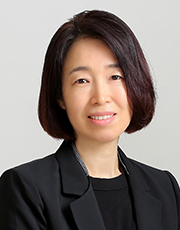
Leem Boksoon
President
Korea International Cruise Institute
President, Korea International Cruise Institute
Secretary-General, Asia Cruise Leaders Network (ACLN)
In 2018, she founded the Busan International Cruise Institute and has since been dedicated to revitalizing Korea’s cruise industry. Her work focuses on building the infrastructure and fostering cooperation necessary for the development and growth of the Northeast Asian cruise market. She currently serves as the Secretary-General of the Asia Cruise Leaders Network (ACLN), a regional cooperative body for the Asian cruise industry.
Main areas of interest
the cruise industry, the development of a Northeast Asia cruise industry growth model, and talent cultivation.

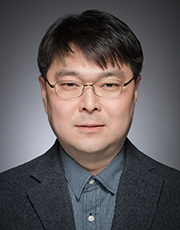
Lee Chulung
Professor/Research Professor
Korea University, School of Industrial Management Engineering,
University of British Columbia, Sauder School of Business
Professor, Department of Industrial and Management Engineering, Korea University
Visiting Professor, University of British Columbia, Canada
President, the Korean Society of Intellectual Property Education & Research
Senior Vice President, the Korean Society of Supply Chain Management
President, Smart SCM (Supply Chain Management) and Logistics Research Group
AI Advisory Committee Member, Incheon International Airport Corporation
Chulung Lee is a professor of Industrial and Management Engineering with Korea University and a visiting professor in the Sauder School of Business at University of British Columbia. He is the president for the Korean Society of Intellectual Property Education and Research (KOSIPER) and the president of Smart SCM (Supply Chain Management) and Logistics Research Group. Before joining Korea University in 2005, he was an assistant professor of Industrial and Systems Engineering at National University of Singapore and a research associate with the department of Management Science at University of Waterloo from 2000. He obtained his Ph.D in Industrial and Management Engineering at the Pennsylvania State University, and B.S. and M.S degrees from Seoul National University.
He worked with various industry leaders throughout his career: PSA corporation and Changi Airport in Singapore. Hanjin Busan New Port Container terminal, Korea Maritime Institute and Incheon Port Authority for maritime research in Korea, Incheon International Airport Corporation and Korea Airport Corporation for air transportation research in Korea, Hanjin and Coupang for logistics research in Korea, and Korea Technology Finance Corporation and many other organization for AI research in Korea. His research interests originally stems from material handling and logistics, highlights with his contributions in air transportation and maritime research, and now further develops into Artificial Intelligence and Management of Technology. He is an author of more than 120 peer-reviewed publications and an advisor for many industry leaders in logistics and transportation.

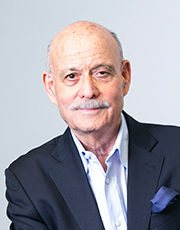
Jeremy Rifkin
President
The Office of Jeremy Rifkin, Foundation on Economic Trends, FOET
Jeremy Rifkin is an economic and social theorist and the best-selling author of twenty-three books translated into thirty-five languages. His new book Planet Aqua: Rethinking Our Home in the Universe has just been published in all the major word languages. Mr. Rifkin is a principal architect of the European Union’s and China’s economic plans for transitioning into a Third Industrial Revolution to address climatechange and he served as an advisor to Senate Majority Leader Charles Schumer on theU.S. infrastructure plan. He is listed among the top ten most influential economic thinkers in The Huffington Post’s global survey of “The World’s Most Influential Voices.”

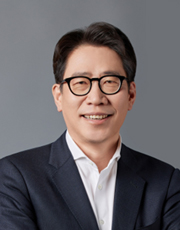
Park Heeyun
Head
HDC Hyundai Development Company Development Division
Education
M.S.– Urban Development and Management, Hanyang University
Completed Ph.D. Coursework – Graduate School of Science and Engineering, Waseda University, Japan
Career
2018 ~ Present – Head of Development Division (Executive Vice President), HDC Hyundai Development Company
Former – Senior Urban Planning Consultant & Head of Korea Office, Mori Building, Japan
Former – First Korean Employee at Mori Building (12 years of service)
Major Projects
Yongsan I’Park Mall Renewal
Jeongseon Park Roche Resort Development
Development of the Area Surrounding Kwangwoon University Station
Comprehensive Development of Zone 1, Yongsan Maintenance Depot
Publication
『도쿄를 바꾼 빌딩들』 (2024) The Buildings That Changed Tokyo

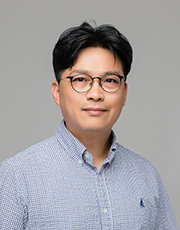
Kim Juhyoung
Professor
Kunsan National University, Department of Aquaculture and Aquatic Science
Career
Mar 2015 – Present: Professor, Department of Marine Biology, The College of Ocean & Bioscience, Kunsan National University (Specialized in seaweed physiology and ecology, and coastal ecosystem restoration)
Mar 2022 – Present: Director, Fisheries Science Institute, Kunsan National University
Oct 2024 – Present: Advisory Member, Blue Carbon Expert Committee for Sea Forests, Korea Fisheries Resources Agency
Nov 2024: Participated in UNFCCC COP29 and presented achievements in the field of blue carbon and sea forests
Professor Ju-Hyoung Kim earned his Ph.D. in Oceanography from the Department of Earth and Environmental Sciences at Chonnam National University in February 2014. His research has focused on carbon dynamics in coastal vegetation (seaweeds, seagrasses, microalgae) and their physiological and ecological adaptability to climate change, including ocean acidification and warming.
In 2015, he was appointed as a professor in the Department of Marine Biology at Kunsan National University, specializing in coastal ecosystem restoration using seaweeds, and has since continued related research.
Over the past ten years, Professor Kim has actively conducted a wide range of research, including blue carbon studies involving seaweeds and seagrasses, research on invasive alien seaweed species, resolving industrial issues in seaweed aquaculture, and utilizing biomass from large-scale seaweed blooms. He is recognized as a leading researcher in seaweed-related education and research in Korea.
Since 2021, he has spearheaded systematic and active blue carbon research in Korea, starting with studies on the carbon sequestration capacity of sea forests.

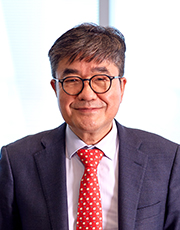
Shin Hyoungchul
President
Korea Polar Research Institute (KOPRI)
Education
Mar 1983 - Feb 1987 Seoul National University Oceanography Bachelor
Mar 1987 - Feb 1989 Seoul National University Oceanography Master
Aug 1994 - Dec 2000 University of Tasmania, Australia Marine Ecology PhD
Career
Dec 2023 - Present President, Korea Polar Research Institute
Oct 2020 - Dec 2023 Vice President, Korea Polar Research Institute
Aug 2016 - Aug 2019 Director of Policy and Cooperation, Korea Polar Research Institute
May 2012 - Aug 2016 Director of International Cooperation, Korea Polar Research Institute
Dec 2010 - Dec 2011 Leader, Overwintering Research Team, King Sejong Station, Antarctica
Apr 2009 - Apr 2010 Director of Marine Biology Division, Korea Polar Research Institute
Major Publications
Societal implications of a changing Arctic Ocean, Ambio Volume 51 Pages 298–306
21 published research papers including Zooplankton and micronekton respond to climate fluctuations in the Amundsen Sea polynya, Antarctica, Scientific Reports Volume 9 Article number 10087
Major Activities
Mar 2025 – Present: Non-executive Director, National Research Council of Science and Technology (NST)
Jan 2024 – Present: President, Korean Society of Oceanography
2022 – 2023: Vice President, Korean Society of Oceanography
2017 – 2019: Secretary General, Korea Arctic Research Consortium (KoARC)
2013 – 2018: Vice Chair, Forum of Arctic Research Operators (FARO)
2013 – 2017: Vice Chair, Council of Managers of National Antarctic Programs (COMNAP)
2005 – 2006: Vice Chair, Scientific Committee of the Commission for the Conservation of Antarctic Marine Living Resources (CCAMLR)
Honors and Awards
Nov 2009: Pime Minister’s Commendation for icebreaking research vessel development

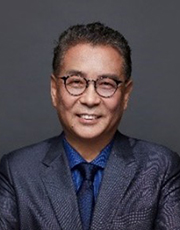
Zinan Liu
Chariman
Royal Caribbean Cruises Asia
Career
Chaiman, Royal Caribbean Cruises Asia
Joined Royal Caribbean International in 2009, Dr. Liu was tasked to lead the growth of the brand in China from scratch. Under his leadership, RCI’s business volume and revenue yield grew rapidly in the following 10 years. Meanwhile RCI has outperformed competition and become a leading cruise brand in China. RCI’s success has been responsible for s spectacular expansion of Asia’s cruise market before the pandemic. Dr. Liu was a member of Royal Economic Society, Chairman of Chinese Economic Association-UK, and Chairman of CLIA North Asia. Dr. Liu has won “The Magnolia Award” from the Shanghai Municipal Government in Recognition of his accomplishment in engaging foreign investment in China.

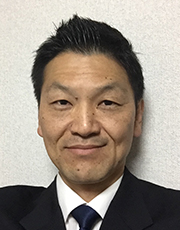
Hirohito Ito
Director/General Manager
Central Consultant Inc., Cruise Research Laboratoryand Digital Transformation Department
Career
Central Consultant Inc., Director of the Cruise Research Laboratory and General Manager of the Digital Transformation Department
Forecasting future cruise demand in Japan
Measuring the economic impact of cruise ship calls nationwide
Writing guidelines for next-generation cruise terminal design
Experimenting with the transportation of cruise passengers by small ships
Analysis of tourism needs using AI natural language processing, etc.
Major Publications
Ito, H., Hanaoka, S. and Sugishita, K. (2022) ‘Structural changes in the cruise network by ship size in Northeast Asia’, The Asian Journal of Shipping and Logistics, Volume 38, Issue 4, December 2022, Pages 207-221.
Ito, H., Hanaoka, S. and Sugishita, K. (2023) ‘Seasonality of the global cruise industry’, Maritime Transport Research, Volume 5, December 2023, 100094
Honors and Awards
Outstanding Engineer Award from the National Institute for Land and Infrastructure Management (NILIM), a research institute of the Ministry of Land, Infrastructure, Transport and Tourism (MLIT), for "Mathematical model for estimating future numbers of cruise passengers in Japan" in July 2019
Dr. Hirohito Ito has been a prominent figure in the cruise industry, actively contributing to its growth in Asia through collaboration with governments, ports, and research institutes at international cruise conferences. He has spearheaded numerous research projects for Japan’s government and port authorities, focusing on areas such as cruise ship acceptance strategies, economic impact assessment using input-output analysis, and future demand estimation for the cruise market.
In recent years, he has expanded his research scope by integrating artificial intelligence technologies (AI) such as machine learning and deep learning into the analysis of the cruise industry. These cutting-edge tools have enabled him to uncover new patterns and provide actionable insights for stakeholders in this rapidly evolving field.
He earned his doctorate in engineering from the Tokyo Institute of Technology (Tokyo Tech) with a dissertation on cruise line port selection, leveraging network analysis of AIS data that tracks cruise ship movements. His innovative approach highlighted key factors influencing port-of-call decisions and set a benchmark for data-driven maritime studies.

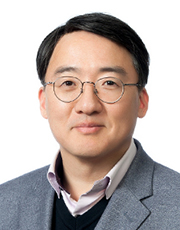
Moon Ilkyeong
Professor
Seoul National University, Department of Industrial Engineering
Career
Professor, Department of Industrial Engineering, Seoul National University (2012~present)
Fellow, The Korean Academy of Science and Technology (2024~present)
Editor-in-Chief, European Journal of Industrial Engineering (2023~present)
President, Korean Institute of Industrial Engineers (2019~2020)
Professor, Department of Industrial Engineering, Pusan National University (1992~2012)
Assistant Professor, Department of Decision Sciences, National University of Singapore (1991~1992)
Ilkyeong Moon is a Professor of Industrial Engineering at Seoul National University in Korea. He received his B.S. and M.S. in Industrial Engineering from Seoul National University, and Ph.D. in Operations Research from Columbia University, USA. His research interests include supply chain management, logistics, and inventory management. He published over 180 papers in international journals. He was a president of KIIE in which he had served from 2019 to 2020. He currently serves as an editor-in-chief for European Journal of IE. He is a fellow of Asia Pacific Industrial Engineering and Management Society and a board member for International Federation for Production Research. He had been elected as a fellow of the Korean Academy of Science and Technology in 2024 which is the most prestigious scientific academic society in Korea.

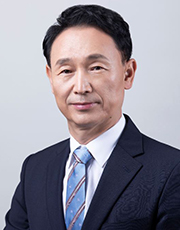
Chang Youngtae
Professor Emeritus
Inha University, Asia Pacific School of Logistics
Prof. Young-Tae (YT) Chang is a Professor Emeritus at the Asia Pacific School of Logistics, Inha University in Incheon, Korea. He has played a crucial role in establishing an international network of education and research at Inha University. This includes serving as the Founding Secretary-General of the Global University 8 Consortium, a Founding Member of the Asian Logistics Round Table (ALRT), and as the President of the Green Research and Education Network (GREEN). In the past, YT served as the President of the Korea Maritime Institute (a government think-tank under the Prime Minister) and as the past President of the Korea Port Economic Association. He has held positions as a Visiting Professor at the University of Rhode Island in the USA, the University of Tasmania as a Visiting Fellow and an Adjunct Professor, Nanyang Technological University in Singapore as Visiting MPA Professor, and the World Maritime University in Sweden as a Visiting Professor. YT has been a keynote speaker and invited speaker at numerous events worldwide. YT is also a member of the Editorial Boards of Maritime Economics & Logistics, International Journal of Logistics Management, and Maritime Transport Research. He reviews papers for most international journals in maritime logistics and general transportation areas, showcasing his commitment to advancing the field.

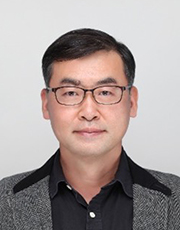
Lee Sungwoo
Senior Research Fellow
Korea Maritime Institute,
Logistics and Maritime Industry Research Department
Career
Adjunct Professor, New Jersey City University
Former Director, Center for Supply Chain & Maritime Logistics, New Jersey, USA
Former Director-General, Comprehensive Policy Research Division, Korea Maritime Institute
Former Civilian Member, Free Economic Zone Committee, Ministry of Trade, Industry and Energy (MOTIE)
Former Adjunct Professor, Hankuk University of Foreign Studies and Korea Aerospace University
Dr. Sung-Woo Lee is a founder and executive director of KMI-NJCU Center for Supply Chain and Maritime Logistics of New Jersey City University and a senior research fellow of Korea Maritime Institute. He worked as a deputy president of Port logistics research division and a deputy president of Comprehensive policy research division. He has been involved in various governmental projects, many of which are associated with shipping management and port logistics park development. He was previously affiliated with the Centre of Urban Planning and Environmental Management at the University of Hong Kong as a visiting researcher. His interests include managerial and strategic aspects of international logistics and maritime transport, making business model based on GSC (Global Supply Chain) and possibility of Arctic logistics system related to Northern Shipping Route. He is also an advisor in related to logistics field for Korea government. His representative writings are Ports in Proximity, Shipping & Port Condition Changes and Throughput Prospects with Opening of the NSR, Challenges of the Changing Arctic and so on. He is a member of International Association of Maritime Economists and guest editor of Sustainability.

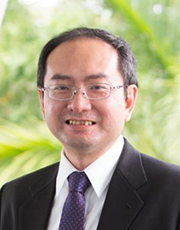
Goh Puay Guan
Associate Professor
National University of Singapore Business School,
Department of Analytics and Operations
Career
Jan 2018 to Present: Associate Professor at National University of Singapore Business School
Jul 2019 to Present: Academic Director of MSc Smart Industries and Digital Transformation
Jun 2022 to current: Board of Directors at Flyoro Technologies, a company providing onsite blending of Sustainable Aviation Fuels (SAF)
Jul 2018 to current: Board of Advisors at Log-hub AG, a Switzerland-based company providing supply chain planning applications using a SAAS (software as a service) business model, with operations in Europe, US and parts of Asia
Puay-Guan Goh is Associate Professor at NUS Business School, where he teaches supply chain
management and technology innovation for Masters programs, and Executive Education. He is
the founding Academic Director of the multi-disciplinary MSc Smart Industries and Digital
Transformation. He is co-editor of the Global Supply Chains in a Glocal World: The Impact of
Covid-19 and Digitalization (World Scientific, 2022), and author of Supply Chain Management:
A Concise Guide (Pearson 2005, 2015), and a frequent commentator for local and international
media. He is / has been a Board Director or Advisor to various corporates, SMES, and
technology startups.
Prior to NUS, Prof Goh held various senior management roles, with P&L responsibilities and
in-country stints in South Korea, China, Indonesia and Vietnam. In 2012, he was awarded the
Junior Chamber International ‘s Top Outstanding Young Persons (TOYP) Merit Award for
Business and Entrepreneurship. Under his management, Batamindo Shipping and
Warehousing was awarded the ASEAN Business Award for Growth (SME) by the ASEAN
Business Advisory Council in 2013.
He has an Executive Doctor of Business Administration from Ecole des Ponts ParisTech, and
obtained a MSc in Management Science and Engineering and BSc in Electrical Engineering from
Stanford University on a Singapore Technologies Scholarship.

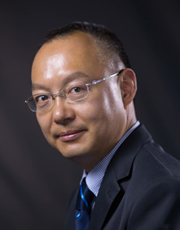
Jianzhong Ge
Professor
State Key Laboratory of Estuarine and Coastal Research (SKLEC)East China Normal University
Career
2021-now: Professor
2016- 2020: Associate Professor
2015-2016: Post-Doctoral Associate at School for Marine Science and Technology, University of Massachusetts Dartmouth
2012-2015: Assistant Professor, State Key Laboratory of Coastal and Estuarine Research (SKLEC), East China Normal University
Ge Jianzhong is a researcher at the State Key Laboratory of Estuarine and Coastal Research (SKLEC), East China Normal University. His research focuses on coastal environmental dynamics, marine physical-ecological coupling mechanisms, and high-performance computing for ocean numerical modeling. He has led and participated in multiple research projects, including those funded by the National Natural Science Foundation of China (NSFC), National Key R&D Programs, and provincial/ministerial-level initiatives.
As a core member of the international FVCOM development team, he has contributed to key modules such as wave-current interactions, fine-grained cohesive sediment transport, and coupler development. He also co-developed the FVCOM-ERSEM biogeochemical model and established a multi-scale, physics-biogeochemistry coupled modeling system for the China Seas and the Yangtze Estuary, which has been applied in operational forecasting systems for the East China Sea and South China Sea.

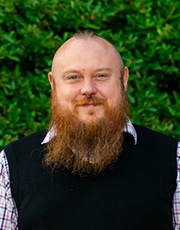
Adam Sobey
Director/Professor
The Alan Turing Institute Mission Sustainability,
University of Southampton, Data-Centric Engineering
Career
2025- Mission Director (Sustainability), The Alan Turing Institute
2023-2025 Programme Director (Data-Centric Engineering), The Alan Turing Institute
2022- Professor of Data -Centric Engineering, University of Southampton
2019-2023 Theme Lead (Marine and Maritime), The Alan Turing Institute
2020-2022 Associate Professor, University of Southampton
2018-2020 Lecturer University of Southampton
2014-2017 Visiting Scientist, Institute of High Performance Computing
2015-2018 New Frontiers Fellow, University of Southampton
2014-2015 Research Fellow LRET, University of Southampton
2010-2013 Research Fellow LR/MoD Centre of Excellence in Ship Structures, University of Southampton
Adam Sobey is Chair of Data-Centric Engineering in the Maritime Engineering Group at The University of Southampton and Mission Director for Sustainability at The Alan Turing Institute, the UK’s National AI and Data Science Institute. The Sustainability mission is a Lloyd’s Register Foundation funded programme developing Data Science, Machine Learning and Artificial Intelligence to reduce emissions in transport and infrastructure systems. He also acts as a Non-Executive Director at Theyr Ltd, a Voyage Optimisation Software provider to the marine industry, and AQ Live, providing data/AI assurance including the first Assurance of a Digital Twin in maritime. His research focuses on the development of algorithms in Reinforcement Learning, Evolutionary Computation and Machine Learning in the context of Engineering Applications, predominantly focused on decarbonisation of shipping. From this he has developed 6 products operating in various companies. He received the Royal Institute of Naval Architects Jeom Paik award for best Paper on Structures by an author under 30 in 2015 for work related to improving Structural Safety of Composite Ships. He is currently an Editor of Data-Centric Engineering and Associate Editor of Ship and Offshore Structures.

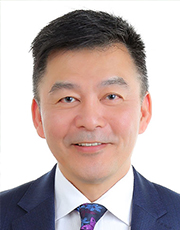
Michael Goh
President
StarDream Cruises
Career
2022 till present: President - StarDream Cruises
With over 30 years of extensive experience in the Asian cruise, hospitality, travel and tourism industry, Michael had successfully spearheaded numerous brands to new heights, especially for the cruise sector in the APAC region.
With decades of early-on experience in hospitality, Michael first ventured into the cruise sector in the year 2000, taking on a dual role as the Vice President of Sales & Marketing for Star Cruises and also as General Manager for the Singapore office.
Michael further expanded his role in 2008 at a regional level as the Senior Vice President of International Sales for Star Cruises and subsequently for Dream Cruises and Crystal Cruises under Genting Cruise Lines. In 2019, Michael was appointed as the President of Dream Cruises, leading the brand into a new chapter of growth as “Asia’s Global Cruise Line”, including successfully restarting Dream Cruises’ operations in Singapore post pandemic.
In May 2022, Michael assumed a pivotal role as President of the newly established Resorts World Cruises, headquartered in Singapore. Under his visionary leadership, the brand embarked on an ambitious growth trajectory, achieving key milestones along the way. He continued to steer the company’s expansion and strategic brand transformation, culminating in the successful launch of the StarDream Cruises brand in March 2025 - which encompasses the revitalized StarCruises and Dream Cruises brands.

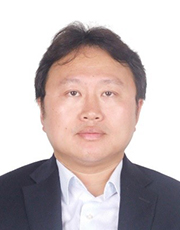
Hu Zhihua
Professor
Shanghai Maritime University, Logistics Research Center
Research Grants
Panoramic Modeling and Experimentation on the Evolution of Spatial Patterns of Maritime Shipping Routes in the South China Sea under the Background of the Belt and Road Initiative and Big Data (January 1, 2019 – December 31, 2022).
Research on Modeling and Enhancement Strategies for the Resilience of Land-Sea Logistics Channels under the Background of the Belt and Road Initiative and Big Data (October 18, 2023 – December 31, 2025).
Research on Spatiotemporal Grid Modeling and Conflict Avoidance Strategies in Compact Intelligent Logistics Operation Scenarios (April 1, 2023 – March 31, 2026).
Sub-project "Collaborative Scheduling Methods for Port Energy-Production Systems" under the Project "Research on Key Technologies for Low-Carbon and Intelligent Fully Automated Ports" (December 2023 – November 2026).
Publications
A textbook titled "Logistics Information System" for graduate and undergraduate students, as well as industry professionals.
A research book titled "Shanghai Logistics Big-Data Research I."
About 17 English papers (indexed by SCI/SSCI) and 8 Chinese papers.
Education
Supervised approximately forty graduate students majoring in Logistics and Management Science.
Hu Zhi-Hua is a researcher at the Logistics Research Center, Shanghai Maritime University. He has previously worked as a software and algorithm developer, and project manager in the information technology industry. In recent years, his research interests have focused on big data and AI applications in container ports, shipping, and logistics.
Firstly, in the context of an Integrated Big Data, Artificial Intelligence, and Multimodal Port Logistics System, he collaborates with enterprises to leverage port big data, artificial intelligence, and large language models. He explores large-scale data modeling and innovative methods to enhance efficiency throughout the entire lifecycle of port logistics.
Secondly, in the area of Security and Sustainable Development of Major Logistics Corridors, he focuses on big data-driven logistics economic geography and policy issues within the framework of the Belt and Road Initiative, land-sea corridors, multimodal transport, and integrated transportation. His theoretical research and reports have provided theoretical justification and consulting services for important departments and central state-owned enterprises.

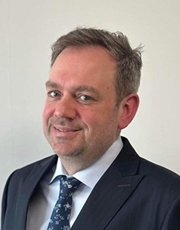
Soeren Gyllun
Director
Ørsted Korea Ltd. Project Development
Career
2023 – 2025 Project Director, Incheon Offshore Wind Power Projects, Orsted Korea Ltd.
2021 – 2023 Technical Director, Greater Changhua Offshore Wind Farm 2204, Orsted Taiwan Ltd.
2020 – 2021 Lead Contracts and Package Manger, Greater Changhua Offshore Wind Farm 0102a, Orsted Taiwan Ltd.
Søren Gyllun is a seasoned commercial and technical professional in the renewables sector, with nearly 15 years of offshore wind experience across diverse disciplines and markets. Beginning his career in the oil and gas industry in 2003, Søren has spent over two decades navigating the global offshore wind projects and industry landscape.
With deep expertise in project development and stakeholder engagement, Søren currently serves as Project Development Director for Ørsted’s Incheon offshore wind project based in Korea. His leadership spans the full lifecycle of offshore wind projects—from strategic planning and execution to managing joint venture requirements and aligning with corporate and regional objectives in Asia Pacific.

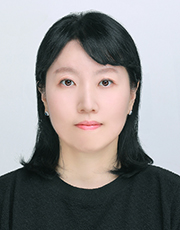
Kang Yeojin
Director
Incheon Port Authority, Passenger Business Department
Career
Current Director, Passenger Business Division, Incheon Port Authority (IPA)
Former Team Leader, Logistics Planning Team, Logistics Strategy Department, IPA
Former Director, Marketing Division, IPA
Former Head, Hong Kong Office, IPA
Dr. Yeo-jin Kang is the Director of the Passenger Business Division at the Incheon Port Authority (IPA). She holds an MBA from The University of Hong Kong and has completed a Ph.D. program in Business Administration at Inha University. Since joining IPA in 2006, she has been responsible for cruise, Korea-China ferry, and coastal passenger marketing, as well as the operation of three passenger terminals at Incheon Port.
With experience in both the private and public sectors since 2004, Dr. Kang has focused on container cargo and passenger marketing, as well as initiatives to enhance port operations. From 2015 to 2018, she led IPA’s first overseas office in Hong Kong as its inaugural head.
A recognized cruise expert at Incheon Port, Dr. Kang has been deeply involved in all aspects of the port’s cruise business — from hands-on marketing and port call support in the early days in 2011, to spearheading cruise homeport strategies and overseeing terminal operations today.

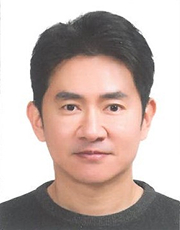
Yoon Hosung
Professor
Kyungpook National University, Department of Biology
Career
Professor at Department of Biology and Director of Blue Carbon Research Center, Kyungpook National University, Korea
Dean of External Cooperation and Public Relations, Kyungpook National University, Korea
Advisory Member of Carbon Neutral Green Growth Committee, Gyeongsangbuk-do, Korea
Executive Committee of International Society for Applied Phycology
Being a phycologist since he was trained as a Ph.D. student at Texas A&M University, USA, he has been publishing over 130 research papers including a 1st author Science paper and a 1st author PNAS paper. Also he has 32 patents on various algal materials and technologies.
After postdoctoral fellowship at Harvard University and research associate position at University of Wisconsin, he moved to Kyungpook National University, Korea in 2005 where he started as a professor.
Based on his molecular biology background, he has been working on various aspects of algal research including development, mass cultivation, bioenergy and CO2 sequestration. Currently he is leading a strong research group to solve Korean CO2 mitigation task by utilizing marine ecosystem. As being a SCUBA instructor trainer, he still dives with his team for underwater blue carbon research around the world.

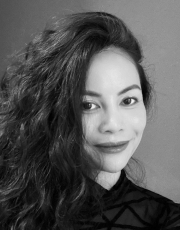
Quynh Thai Le
Head
S&P Global Market Intelligence, APAC Global Insights Consulting
Career
S&P Global Market Intelligence
Head of Asia Pacific – Global Insights Consulting
Singapore | 2022 – Present
- Lead the APAC consulting team delivering custom research and strategic advisory across trade, policy, supply chains, and country/sector risk.
- Advised on implications of tariff escalation, reshoring trends, and regional diversification strategies across ASEAN, China, and India.
- Specialize in cost benchmarking and pricing intelligence for complex sectors like semiconductors, electronics, and industrial manufacturing.
- Support clients in navigating disruption through integration of trade intelligence platforms (e.g., GTAS, Panjiva, Maritime) for decision support.
- Led multi-country engagements on policy simulation and supply chain mapping in response to geopolitical and regulatory changes.
Quynh Thai Le leads the Asia Pacific team for Global Insights Consulting at S&P Global, where she helps governments and multinational corporations navigate disruption and opportunity across global trade, supply chains, and economic policy. With expertise in maritime intelligence, cost modeling, and geopolitical risk, she advises clients on how to adapt to structural shifts such as decarbonization, digital transformation, and global trade realignment.
Quynh has led high-impact projects across ASEAN, Greater China, India, and Oceania—supporting executive decision-making with data-driven insights and strategic foresight. Her recent focus includes helping clients assess the implications of new tariff regimes, regional conflicts, and AI adoption in maritime logistics.
She holds a Master’s degree in Economics (Summa Cum Laude) from Georgetown University and has been a keynote speaker at regional and global forums on supply chain resilience and maritime strategy.

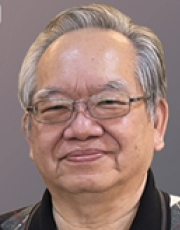
Kwang Tsao Shao
Emeritus Chair Professor/Research Fellow
National Taiwan Ocean University,
Institute of Marine BiologyAcademia
Sinica, Biodiversity Research Centre
Career
Emeritus Research Fellow, Biodiversity Research Center, Academia Sinica (2016.8--)
Emeritus Chair Professor & Part-time Professor in NTOU (2016.2--)
Expertise
Fish taxonomy, ecology and evolution;Marine Ecology & Conservation;Biodiversity Informatics
Education
Ph.D. in Department of Ecology and Evolution, SUNY at Stony Brook USA (1983)
Experience
Director of Institute of Zoology, Academia Sinica (1996-2002)
Acting Director and the Executive Officer, BRCAS (2004-2008 & -2016)
Director of Institute of Marine Biology, NTOU (1991)
Awards
Outstanding Research Award (National Science Council), 1994-1995;
Ten Outstanding Youth of R.O.C. (29th), 1991;Cultural Medal of the M.O.E. 1998;
Ho-Chin-Duei Outstanding Academic Award 2006;
Ten Outstanding Agricultural Experts of R.O.C. 2008;
Forestry and Nature conservation National Award (MOA) 2011;
Social education National Award (MOE) in 2022.;
Marine Education Contribution National Award (MOE) in 2024.
First-Class Marine Professional Medal of the Ocean Affairs Council in 2025.
Selected Publications within 2023~2025
1. Huang W-C, F. Chan E, R. A. Balisco, C. L. Nañola Jr., T-K Chou, W-C Jhuang, C-W Chang, K-N Shen, K-T Shao & T-Y Liao (2023) DNA barcoding of marine teleost fishes (Teleostei) in Cebu, the Philippines, a biodiversity hotspot of the coral triangle Scientific Reports volume 13, Article number: 14867
2. Chen, I.S., Y.C. Liao, L.T. Ho & K.T. Shao (2024) A new species of marine gobiid fish genus Lubricogobius (Teleostei: Gobiidae) from the Philippines. Zootaxa 5550 (1):183-188.
3. Huang. S.P., Y.H. Cheng, K.T. Shao & I.S. Chen (2024) A new species of Paratanakia (Teleostei: Cyprinidae) from Guangdong, China. Zootaxa 5550 (1):240-249.
4. Chen, I.S., K.T.Shao, S. P. Huang (2024) A new Calamiana species (Teleostei: Gobiidae) from brackish waters of northern Taiwan. Zootaxa 5550 (1): 213-223.
5. Liu, M, K.T. Shao, Y. Sadovy, S. Chen(2024)Marine fishes of China and adjacent waters(中国海洋鱼类图鉴)。Cross-Strait Pub. Co./ Cross-Strait Book Company.
6. Shao K.T., Y.C. Chiu, H.K. Huang, Y.F. Chen (2024) Eighteen changes of fish - fish eggs and larvae diversity guide book. (魚大十八變—魚卵及仔稚魚多樣性圖鑑), Published by the National Academy of Oceanography. Vol. I & II.
7. Shao, K.T., H.C. Ho (2025) A Review of the Taxonomic History of Taiwan’s Fishes. Marine Researches. Vol.5. Iss.1 : 1-39.
8. Shao, K.T., S.P. Huang, H.C. Ho, A Review of 35 year establishment of Taiwan Fish Database. Marine Researches. Vol.5. Iss.1 : 40-57

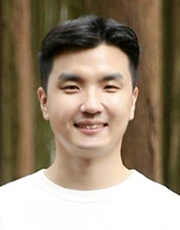
Han Jisung
Managing Director
Surff Company Inc.
Career
2017 – 2021: Hyundai Glovis, Logistics Business Division
2022 – 2023: Hyundai Motor Company, Innovation Division, Open Innovation Investment Team
2023 – present: Co-Founder and COO, SURFF Company Inc.
In 2021, he co-founded SURFF Company Inc., a maritime freight data platform spun off from Hyundai Motor Company’s in-house venture program, and currently serves as its Managing Director. Drawing on his hands-on experience as a global SCM manager at Hyundai Glovis, he launched the company to address the information asymmetry in freight rates and vessel space that became evident during the pandemic.
He is currently leveraging AI to develop customized marketing tools and pricing modules, actively contributing to the digital transformation of the shipping and freight forwarding industries.

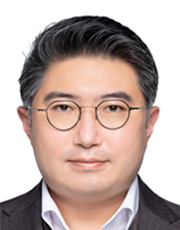
Park Youngho
Director
Ministry of Oceans and Fisheries,
Fishery Resources Policy Division
Career
Aug. 2024 – Present: Director, Fisheries Resources Policy Division, Ministry of Oceans and Fisheries
Jan. 2022 – Jul. 2024: Delegate to the International Labour Organization (ILO), Geneva, Switzerland
Former Director, Port Logistics Planning Division, Ministry of Oceans and Fisheries
Mr. Youngho Park currently serves as Director of the Fisheries Resources Policy Division at the Ministry of Oceans and Fisheries. In this role, he is responsible for formulating and implementing policies for the conservation and sustainable use of fisheries resources. His key initiatives include the creation and restoration of marine habitats such as sea forests and spawning grounds, as well as the management of fisheries through systems like Total Allowable Catch (TAC) and seasonal fishing bans. He is committed to establishing a scientific resource management system that not only ensures the recovery of marine ecosystems but also contributes to the income stability of fishing communities. In response to rapidly changing conditions such as climate change and declining fish stocks, he places strong emphasis on long-term sustainability in both resource conservation and fisheries operations. Going forward, he aims to further strengthen systematic resource management efforts to support ecological restoration and the resilience of Korea’s marine environment.

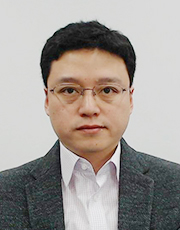
Kim Hyeonseong
Director
Ministry of Oceans and Fisheries, Marine Ecology Division
Career
Director, Marine Ecology Division (Jan. 20, 2023 – Present)
Former Director, Shipping and Port Division, Busan Metropolitan City
Former Head, Smart Shipping and Logistics Team
Former Head, Polar Policy Team and Digital Communication Team
*Since joining the Ministry of Oceans and Fisheries in 2009, he has built a diverse career spanning logistics, shipping, marine science and technology, budgeting, and legal affairs. He holds a Master’s degree in Public Policy from the University of Southern California.
As former Head of the Smart Shipping and Logistics Team, he led key initiatives on next-generation maritime technologies, including autonomous vessels. He now serves as Director of the Marine Ecology Division, where he is responsible for marine biodiversity conservation, the designation and management of marine protected areas, tidal flat preservation, and the protection of endangered marine species. He is also spearheading national efforts to promote blue carbon, a vital emerging solution for carbon absorption and climate resilience.

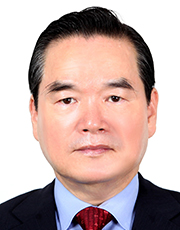
Lee Youngtae
Invited Professor
Inha University Gyeonggi–Incheon Sea Grant Center
Career
Mar 1, 2025 – Present: Invited Professor, Inha University
Oct 12, 2021 – Dec 31, 2024: Director of Marine and Fisheries Cooperation, Ganghwa County, Incheon (Local Fixed-term Senior Executive)
Jun 30, 2021: Appointed as Senior Deputy Director (Grade 3), Ministry of Oceans and Fisheries
Sep 5, 2018 – Jun 29, 2021: Director (Grade 4), Ministry of Oceans and Fisheries
◈ 2021, he served as Director of Marine and Fisheries Cooperation for Ganghwa County, where he played a key role in securing national project funding from the Ministry of Oceans and Fisheries. Under the “Fishing Village New Deal 300” program, Ganghwa successfully secured KRW 10.6 billion for Chojihang Port in 2021 and KRW 11.6 billion for Oepo District in 2022.
- Continuing this momentum, he contributed to the selection of Janggothang Port and Jumunhang Port under the “Fishing Village Vitalization Project” in 2023 and 2024 respectively, each receiving KRW 10 billion. In total, he contributed to securing approximately KRW 42.2 billion in project funding.
◈ He has also been actively involved in coordinating various maritime and fisheries-related matters with the Ministry of Oceans and Fisheries, including national fishing port development, sea area use consultation, public waters management, state-subsidized passenger ships, coastal maintenance, and the marine healing industry.





